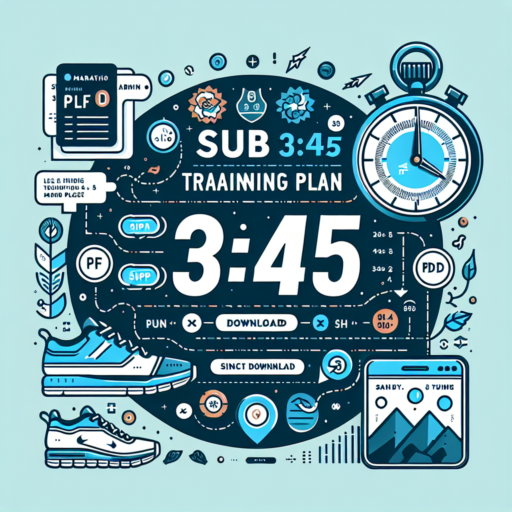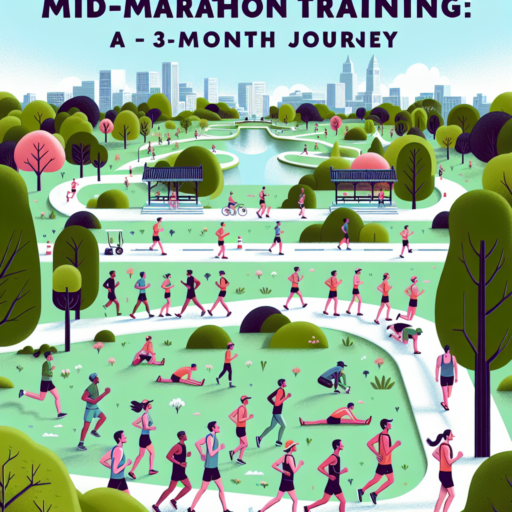How many miles per week for sub 18 5K?
Achieving a sub 18-minute 5K is a notable goal that many runners aim for. It requires not just speed but also endurance, strength, and strategy. A critical element in reaching this goal is the amount of mileage you put in each week. There’s no one-size-fits-all answer, as factors like your running background, current level of fitness, and personal response to training vary. However, experienced coaches and successful athletes often recommend certain training volumes as part of a well-rounded preparation plan.
On average, runners looking to break the 18-minute barrier for a 5K might find themselves running anywhere from 30 to 50 miles per week. This range allows for a solid mix of speed work, tempo runs, long runs, and recovery days. It’s essential to gradually increase your mileage to avoid injury, with a focus on incorporating quality workouts over merely adding miles. Specific workouts, such as intervals and tempo runs, are crucial in developing the speed and strength necessary for a sub 18 5K.
Moreover, it’s important to listen to your body and adjust your training as needed. Overtraining can be as detrimental as not training enough. Supplementing your running with strength training, proper nutrition, and ample recovery can also enhance your performance. Integrating these elements with an appropriate weekly mileage will set a solid foundation towards achieving a sub 18-minute 5K.
How to run sub 18 5km?
Running a 5km in under 18 minutes is a commendable goal that requires not only dedication but also strategic planning and execution. This time frame sets you in a high-performance bracket, demanding both speed and endurance. To achieve this, focusing on three key areas is essential: targeted training, nutrition, and recovery. Each aspect plays a crucial role in optimizing your performance and ensuring that every step takes you closer to your sub 18-minute goal.
Targeted Training Techniques
First and foremost, your training must be structured around improving your pace and endurance simultaneously. Incorporating a mixture of long runs, tempo runs, and interval training is vital. Interval training, for instance, can significantly improve your VO2 max, enabling your body to utilize oxygen more efficiently during the run. Additionally, do not overlook the importance of hill sprints; they are excellent for building strength and speed. A balanced approach to training will ensure consistent improvement and reduce the risk of injury.
Nutrition and Hydration
Nutrition cannot be understated when preparing for a sub 18-minute 5km. Your body needs the right fuel to perform and recover. Focus on a balanced diet rich in carbohydrates for energy, proteins for muscle repair, and fats for endurance. Staying hydrated is equally crucial, as even slight dehydration can significantly impact your performance. Optimal nutrition and hydration strategies should be tailored to your body’s needs and the demands of your training program.
Recovery and Rest
Lastly, the significance of recovery and rest must be emphasized. Adequate rest, including both quality sleep and rest days in your training schedule, is essential to allow your body to recuperate and grow stronger. Integrating active recovery methods like stretching and foam rolling can further enhance your body’s ability to recover and prepare for the next session. Remember, the quality of your rest directly influences the quality of your runs.
What pace is a 5K in 18 minutes?
Running a 5K in 18 minutes is a notable achievement that places runners well above the average recreational pace. To break it down, achieving this time requires maintaining a consistent pace of 3:36 per kilometer or 5:47 per mile. This level of performance is indicative of an advanced running ability, often seen in those who have committed considerable time to training and conditioning.
The tempo for an 18-minute 5K demands not only a high level of cardiovascular fitness but also strategy in pacing. Runners must balance between starting out too fast, which can lead to premature fatigue, and being too conservative, which could make it difficult to achieve the desired time. It’s a fine line that demands experience and often, meticulous planning and pacing during the run.
To attain and maintain such a vigorous pace, specific training regimens focusing on speed work, endurance, and proper recovery are essential. Incorporating intervals, tempo runs, and long-distance days into a training plan can significantly enhance a runner’s ability to sustain the 5:47 per mile pace needed for an 18-minute finish. Runners aiming for this goal also need to prioritize nutrition, hydration, and rest, as these factors play a crucial role in performance and recovery.
No se han encontrado productos.
What is a good 5K time for an 18 year old male?
Understanding what constitutes a «good» 5K time for an 18-year-old male involves considering several factors, including fitness level, running experience, and individual goals. On average, a solid benchmark for this age group falls around the 20-25 minute mark. This range represents a broad spectrum of abilities, from newcomers to seasoned high school athletes. However, it’s important to note that achieving a «good» time is highly personal and varies widely based on individual effort and training.
For competitive runners, breaking the 20-minute barrier is often seen as an accomplishment. This means maintaining a pace just under 6:26 per mile, a feat that requires not only natural speed but also dedication to training and strategy. It’s the intensity and consistency of training that can significantly affect an 18-year-old’s ability to achieve this milestone. In contrast, those new to running might find reaching a sub-30-minute time more realistic and equally rewarding, symbolizing a major personal victory.
Many young athletes aim to improve their 5K times through structured training programs. These often include a mix of long runs to build endurance, speed workouts to increase pace, and recovery days to prevent injuries. For an 18-year-old male, balancing rigorous training with proper rest and nutrition is key to not only improving performance but also ensuring long-term health and fitness. With these elements in place, the goal of achieving a «good» 5K time becomes more attainable, whether that time is below 25, 20, or even 18 minutes.




